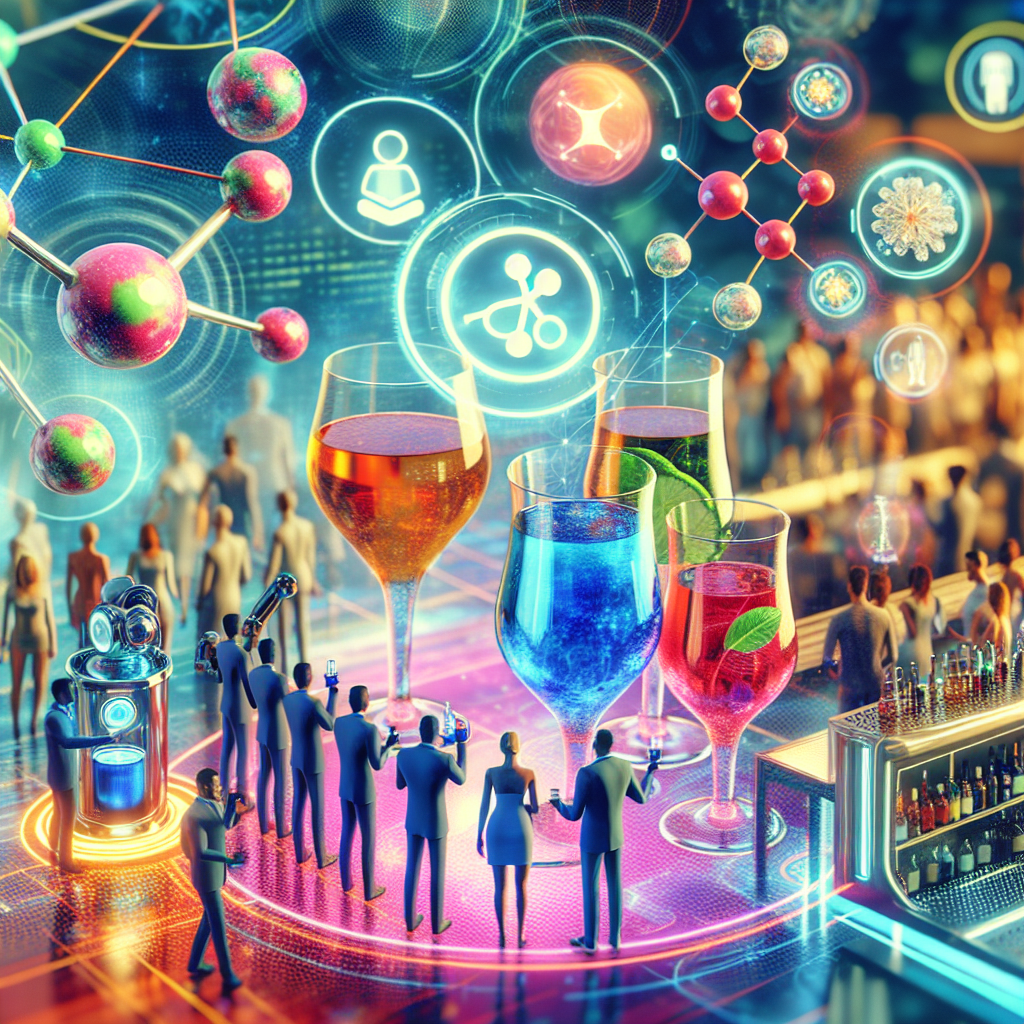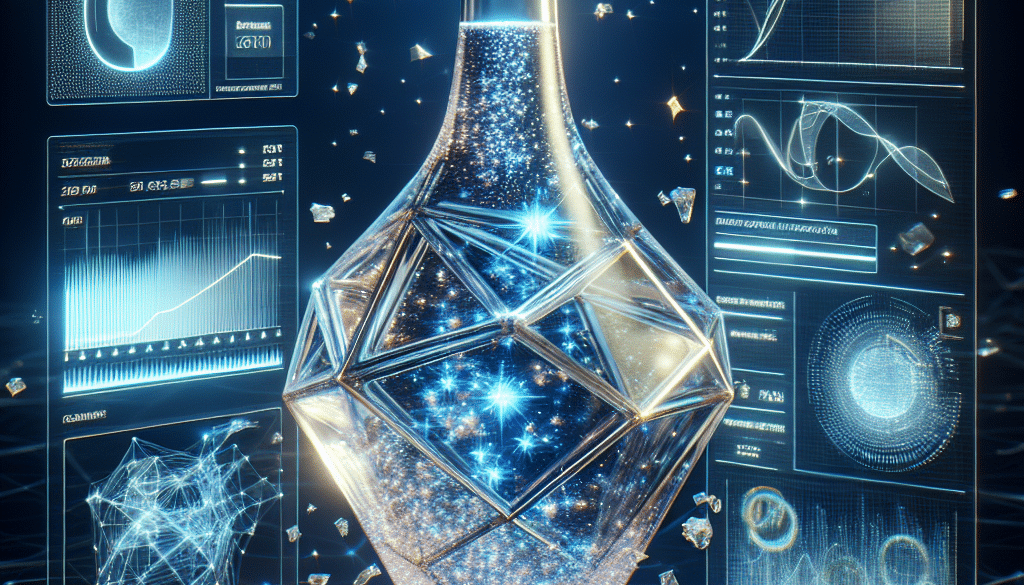Alcoholic Beverage Future: Predicting with New Insights
-
Table of Contents
- Alcoholic Beverage Industry: Insights and Predictions for the Future
- Current State of the Alcoholic Beverage Industry
- Emerging Trends in Alcoholic Beverages
- Technological Innovations Driving Change
- Non-Alcoholic and Low-Alcohol Beverages: A Growing Market
- Case Studies: Success Stories in Innovation
- Statistics and Market Analysis
- Future Predictions for the Alcoholic Beverage Industry
- Conclusion: The Evolving Landscape of Alcoholic Beverages
- ETprotein: Enhancing the Alcoholic Beverage Industry
Alcoholic Beverage Industry: Insights and Predictions for the Future

The alcoholic beverage industry has been a dynamic and evolving sector, with consumer preferences and industry practices constantly shifting. As we look towards the future, several trends and insights emerge that could shape the landscape of alcoholic drinks. This article delves into the potential future of alcoholic beverages, exploring new insights and predicting the direction in which the industry is headed.
Current State of the Alcoholic Beverage Industry
Before we can predict the future, it’s essential to understand where the industry stands today. The global alcoholic beverage market is diverse, encompassing a wide range of products including beer, wine, spirits, and more recently, hard seltzers and ready-to-drink (RTD) cocktails. Consumer preferences have been leaning towards premiumization, craft and artisanal products, and health-conscious options like low-calorie and non-alcoholic drinks.
Emerging Trends in Alcoholic Beverages
Several key trends are currently shaping the alcoholic beverage industry:
- Sustainability: Consumers are increasingly concerned about the environmental impact of their purchases, leading to a rise in demand for sustainable and ethically produced beverages.
- Health and Wellness: There is a growing trend towards low-alcohol, low-calorie, and non-alcoholic alternatives as consumers become more health-conscious.
- Technology and Personalization: Advances in technology are enabling personalized experiences, such as custom labels and flavors, and more efficient production processes.
- E-commerce and Direct-to-Consumer Sales: The pandemic has accelerated the shift towards online shopping, including the purchase of alcoholic beverages.
Technological Innovations Driving Change
Technology is playing a pivotal role in transforming the alcoholic beverage industry. Innovations such as artificial intelligence (AI) for predicting consumer trends, blockchain for supply chain transparency, and augmented reality (AR) for marketing are becoming more prevalent. Additionally, the use of big data analytics helps companies to understand consumer behavior and preferences better, allowing for more targeted product development.
Non-Alcoholic and Low-Alcohol Beverages: A Growing Market
The rise of non-alcoholic and low-alcohol beverages is one of the most significant trends in the industry. Health-conscious consumers, particularly millennials and Gen Z, are driving demand for these alternatives. Brands are responding by creating sophisticated non-alcoholic options that mimic the taste and experience of traditional alcoholic drinks.
Case Studies: Success Stories in Innovation
Several companies have successfully capitalized on emerging trends:
- Seedlip: As the world’s first distilled non-alcoholic spirit, Seedlip has carved out a new niche in the market.
- BrewDog: This craft beer company has expanded its product line to include a range of non-alcoholic beers, appealing to the health-conscious consumer.
- Absolut: Known for its vodka, Absolut has ventured into the RTD market with its canned cocktails, meeting the demand for convenience and quality.
Statistics and Market Analysis
Market research indicates that the global non-alcoholic beer market size is expected to reach USD 29 billion by 2026, growing at a CAGR of approximately 7.5% during the forecast period. Similarly, the RTD cocktail market is projected to grow significantly, with a CAGR of around 12% from 2021 to 2028.
Future Predictions for the Alcoholic Beverage Industry
Based on current trends and market analysis, here are some predictions for the future of the alcoholic beverage industry:
- Continued Growth of Non-Alcoholic and Low-Alcohol Beverages: This segment will likely continue to expand as more consumers seek healthier lifestyle choices.
- Increased Focus on Sustainability: Sustainable practices will become a standard as consumers demand more eco-friendly products.
- Personalization and Customization: Advances in technology will enable brands to offer more personalized products and experiences.
- Expansion of E-commerce: Online sales of alcoholic beverages will continue to grow, with more brands offering direct-to-consumer options.
Conclusion: The Evolving Landscape of Alcoholic Beverages
The alcoholic beverage industry is poised for significant change, driven by consumer preferences for healthier options, sustainability, and personalized experiences. Technological advancements will continue to play a crucial role in shaping the future of the industry. As we look ahead, it’s clear that innovation and adaptability will be key for brands looking to succeed in this competitive market.
ETprotein: Enhancing the Alcoholic Beverage Industry
As the alcoholic beverage industry evolves, there is an opportunity for companies like ETprotein to contribute to this transformation. ETprotein’s high-quality protein products can be used to develop new and innovative beverages that cater to health-conscious consumers. Their organic bulk vegan proteins and L-(+)-Ergothioneine (EGT) can be incorporated into non-alcoholic and low-alcohol beverages to enhance nutritional value without compromising on taste.
For brands looking to innovate within the alcoholic beverage sector, ETprotein offers a range of products that align with current consumer trends. Their commitment to non-GMO, allergen-free, and high-purity ingredients makes them an ideal partner for companies aiming to create healthier and more sustainable beverage options.
About ETprotein:
ETprotein, a reputable protein and L-(+)-Ergothioneine (EGT) Chinese factory manufacturer and supplier, is renowned for producing, stocking, exporting, and delivering the highest quality organic bulk vegan proteins and L-(+)-Ergothioneine. They include Organic rice protein, clear rice protein, pea protein, clear pea protein, watermelon seed protein, pumpkin seed protein, sunflower seed protein, mung bean protein, peanut protein, and L-(+)-Ergothioneine EGT Pharmaceutical grade, L-(+)-Ergothioneine EGT food grade, L-(+)-Ergothioneine EGT cosmetic grade, L-(+)-Ergothioneine EGT reference grade and L-(+)-Ergothioneine EGT standard. Their offerings, characterized by a neutral taste, non-GMO, allergen-free attributes, with L-(+)-Ergothioneine purity over 98%, 99%, cater to a diverse range of industries. They serve nutraceutical, pharmaceutical, cosmeceutical, veterinary, as well as food and beverage finished product distributors, traders, and manufacturers across Europe, USA, Canada, Australia, Thailand, Japan, Korea, Brazil, and Chile, among others.
ETprotein specialization includes exporting and delivering tailor-made protein powder and finished nutritional supplements. Their extensive product range covers sectors like Food and Beverage, Sports Nutrition, Weight Management, Dietary Supplements, Health and Wellness Products, and Infant Formula, ensuring comprehensive solutions to meet all your protein needs.
As a trusted company by leading global food and beverage brands and Fortune 500 companies, ETprotein reinforces China’s reputation in the global arena. For more information or to sample their products, please contact them and email sales(at)ETprotein.com today.












